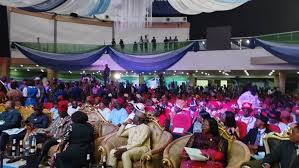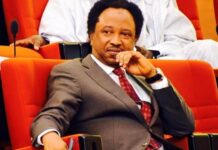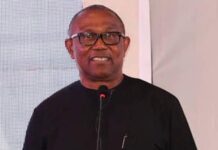The Niger Delta Stakeholders Summit, currently underway in Port Harcourt, Rivers State, has attracted a roster of influential figures, highlighting the region’s ongoing importance in Nigeria’s political and economic landscape.
The gathering, themed “Renewed Hope for Sustainable Development in the Niger Delta Region,” brings together key players from various political eras and regions to address the persistent challenges facing this resource-rich but troubled area.

Former President Goodluck Jonathan’s presence at the summit underscores the event’s significance. As a son of the Niger Delta and a former leader of Nigeria, Jonathan’s participation lends weight to the discussions and reflects the continuing relevance of the region’s issues on the national stage.
The attendance of Senate President Godswill Akpabio, representing President Bola Tinubu, signals the federal government’s interest in the summit’s outcomes. Akpabio, himself a former governor of Akwa Ibom State in the Niger Delta, brings both national leadership perspective and local insight to the proceedings.
Notably, Governor Douye Diri of Bayelsa State stands out as the only South-South governor physically present at the summit. The absence of other governors from the region, who opted to send their deputies, raises questions about the priorities and commitments of current state leadership to collaborative efforts for regional development.
The presence of governors and former governors from outside the Niger Delta, such as Governor Lucky Aiyedatiwa of Ondo State and former Governor Adams Oshiomhole of Edo State, suggests a recognition that the region’s challenges have implications beyond its geographical boundaries.
However, the absence of some key figures is equally telling. Rivers State Governor Siminalayi Fubara, despite being the host, is represented by the state’s Head of Service, George Nwaeke. This decision may reflect ongoing political tensions in Rivers State or indicate differing priorities in addressing regional issues.
The non-attendance of Nyesom Wike, the Minister of the Federal Capital Territory and former Rivers State governor, is particularly noteworthy given his influential role in the region’s politics.
This summit comes at a crucial time for the Niger Delta. Despite its vast oil resources, the region continues to grapple with environmental degradation, economic underdevelopment, and social unrest. The theme of “Renewed Hope” suggests an attempt to reinvigorate efforts to address these long-standing issues.
Key topics discussed include:
1. Environmental remediation and sustainable resource management
2. Economic diversification and job creation
3. Infrastructure development
4. Youth empowerment and education
5. Security challenges and conflict resolution
The outcomes of this summit could have far-reaching implications for the Niger Delta’s future. However, the effectiveness of any resolutions will depend on the commitment of both regional and national leaders to implement agreed-upon strategies.
As the summit progresses, observers will be keen to see whether it produces concrete action plans or remains another talking shop. The diversity of attendees presents an opportunity for comprehensive dialogue, but also highlights the complex web of interests that have historically complicated development efforts in the region.
The Niger Delta’s story is one of stark contrasts – immense wealth generation alongside persistent poverty and environmental challenges. This summit represents another chapter in the ongoing effort to reconcile these contradictions and chart a more sustainable path forward for one of Nigeria’s most critical regions.



